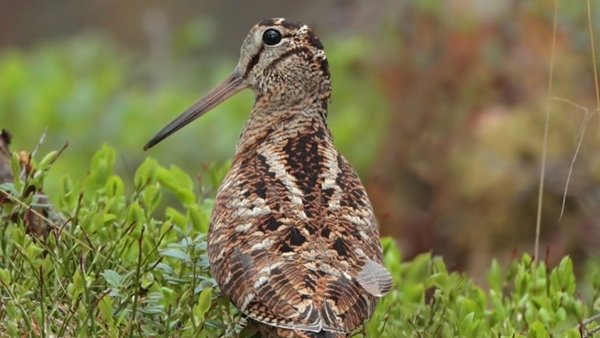
Now is the time for us to show our support for woodcock
By Dr Andrew Hoodless, GWCT Director of Research
Camouflaged, small and active at dawn and dusk, it’s no wonder that woodcock remained a mystery for so long. Throughout the past 20 years, members like you have made it possible for us to shine a light on this cryptic bird, which is now red-listed.
Thanks to our work, we now know that most of the woodcock we see in winter breed in Russia, Scandinavia or the Baltic states, but a small minority are resident birds that remain in Britain all year round. Recent surveys show that these British breeders are in trouble. However, it is essential that any decisions are made with robust evidence. When it comes to woodcock, as Defra acknowledge, we are the only organisation who can provide it. Your donations make that possible.
The coming years will be vitally important for woodcock. Donate today to help us to do all we can to support them.
DONATE HERE →
Pressure from public petitions have heightened the focus on the shooting of woodcock across the United Kingdom.
Earlier this year, the government responded to almost 15,000 people signing a petition calling for a ban on shooting woodcock in England. Our research proved vital to their answer. “The research of the GWCT will be key to a growing understanding of the woodcock and the pressures the species faces”, said a Defra official, highlighting the importance of our past work and what is coming up.
Last November, Welsh Parliament responded that “Any regulatory changes to the listing of amber and red listed species as shooting quarry would need to be underpinned by robust evidence to support that change and need to be considered alongside other factors that are contributing to the decline of these endangered species such as loss of habitat and the effects of climate change.”
The work undertaken in the next few years will be vital in informing the debate about woodcock.
Next year we’ll launch the third national survey of breeding woodcock. For such an elusive bird, targeted counting efforts are the only way to get a true picture of their population. You might remember the last survey in 2013, which suggested that the population had fallen by almost a third in just ten years. We need to encourage as many skilled volunteers as possible to take part to provide a true picture of the change in the past decade. Your donation can make a real difference in enabling a robust survey.
It isn’t just the national survey that will make a difference.
For each of the past ten winters we have been ringing about 150 woodcock in both Hampshire and Cornwall to understand annual survival at each site. Analysis of the data from this project will be completed in 2022, with results published soon afterwards.
This has been long, tiresome work. To catch a woodcock, you not only need a bird ringing licence, a lot of kit and a good eye, you need patience. The most successful catch nights are those when the weather is wild, so we head out to catch woodcock after the birds have settled down for the night when rain and wind are forecast, wrapped in warm clothes and armed with spot-lights. The worst nights are paradoxically the most productive for woodcock fieldwork. The majority of this is undertaken by just two people – me and our head of Wetland research, Dr Chris Heward.
I am proud that we remain at the forefront of research into this amazing bird, a species I’ve worked on throughout my career. With your help, the GWCT can continue to lead the way for years to come. The GWCT’s proven expertise, along with your support, can get our breeding woodcock on the road to recovery. You may have noticed a change in attitude towards woodcock on shoots, with people listening to our guidance on a delayed start to the season.
DONATE HERE →
No other organisation is trusted by the countryside community in this way and we’re grateful to all of you who have taken on this advice.
I can think of few birds that are held in such high esteem amongst our members as the woodcock. I am confident that, with members like you lending their support, we can provide a bright future for our breeding population. Your donation can make help us make a real difference for woodcock. Please give whatever you can.
- £25 pays for 100 woodcock rings or for the time to download and analyse the data from one GPS tag.
- £75 covers travel costs for five nights of essential fieldwork, unlocking inisights into woodcock behaviour.
- £250 covers a day of staff time on data analysis and writing of woodcock research, ready for peer-review in a scientific journal.